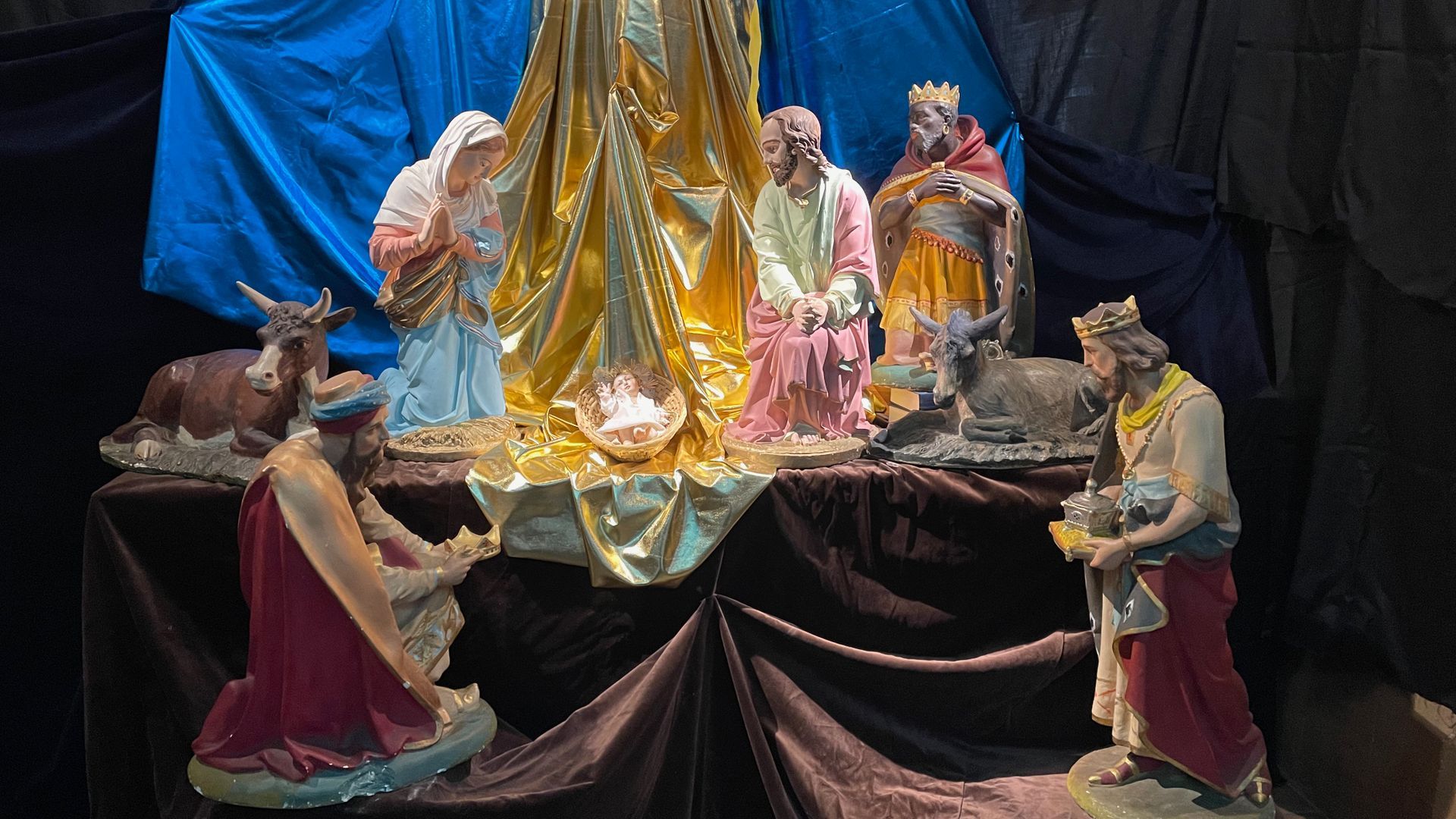Message of Abbot Paul - Friday 6th January 2023
Abbot Paul • January 5, 2023

“Above you the Lord now rises and above you his glory appears. The nations come to your light and kings to your dawning brightness.”
What a blessing it is that we can celebrate the Epiphany on the right day and so keep the Twelve Days of Christmas. Sadly, the Epiphany, greatest and most important of all Christian feasts after Easter, is now overlooked, forgotten or unknown to most people. They know about the kings and the star, but that’s about all. In any case, they celebrate them together with the shepherds and the angels on Christmas Day or long before. Last night my mother was expressing her sorrow that all her neighbours had dismantled their Christmas trees and taken down their decorations on 2nd January. Mind you, some had them up since 1st November. People no longer have the patience to wait for anything and that means they are no longer able to really celebrate and enjoy the feasts and get to know the mysteries of our faith.
Advent and Christmas, like the star, guide us to the great Feast of the Epiphany, or Theophany as our eastern brethren call it. This is the Feast of Light, Easter in Winter, when in ages past whole towns and nations were baptised and received into the Church. It celebrates and allows us to meditate on the three mysteries of Christ’s appearing to the world as Messiah, Saviour and Lord.
Today we recall the coming of the wise men to Bethlehem, following the light of a star. In the cave at Bethlehem, they kneel and adore the Christ Child, God made man, and offer him their prophetic and symbolic gifts. The gifts were three; we don’t know how many wise men there were. The place where the star came to rest is itself prophetic, for he who is born in the House of Bread is himself the Bread of Life and he who is laid on the wood of the manger will die for our sins on the wood of the Cross. Today we remember the Baptism of Jesus in the Jordan by John the Baptist, when the Father’s voice was heard declaring him to be his beloved Son, while the Holy Spirit descended on him in the form of a dove. The Baptism of Jesus is a true Theophany, where the Holy Trinity is revealed to us and Jesus is proclaimed to be the Lamb of God who takes away the sin of the world. Today we celebrate the Marriage Feast of Cana, where Jesus performed his first miracle, his first sign, at the request of his Mother, transforming water into wine just as at the Last Supper the wine would become his Blood “shed for many for the remission of sins.”
The full meaning of Advent and Christmas is not revealed until today and the Paschal Mystery of Christ’s Passion, Death and Resurrection can only be understood in the light of the Epiphany. That is why on the Epiphany it is an ancient custom, after the Gospel, to read out the dates of the moveable feasts of the year, for the seed of Easter is sown today. The Epiphany is also reflected in the Transfiguration of Jesus on Mount Tabor, where the three disciples see once more that vision given to the Baptist on the banks of the Jordan. From the summit of Tabor and from the height of the Epiphany, through Christ and with Christ and in Christ, we can look back at the whole History of Salvation and we can look forward to the Last Day and his Second Coming, when every tear will be wiped away and God’s Kingdom fulfilled.
Truly today, “the people that walked in darkness has seen a great light; on those who live in a land of deep shadow a light has shone.” We rejoice on the Epiphany because we no longer walk in darkness: we walk in the light of Christ. The Child in the manger, the Man on the riverbank and the Guest at Cana is Jesus our Lord, who said to his disciples, “I am the Light of the world. He who follows me will not walk in darkness, but will have the light of life.” He also said to them, “You are the light of the world. A city that is set on a hill cannot be hid.” In Christ we too are light and in us others can see God. The Epiphany teaches us that we too are the light of the world, if we allow our star to shine and so guide others, that we too are beloved children of God, if we live each day the grace of baptism, and that we too can change our world as Jesus transformed water into wine, if we are prepared to love and sacrifice ourselves for others. The Epiphany tells us to look through the prism of Jesus at ourselves and at our world. Christ renews in us today the vocation of shedding his light on everyone we meet and on every situation.
“Above you the Lord now rises and above you his glory appears. The nations come to your light and kings to your dawning brightness.” On behalf of the monastic community, I wish you all a blessed and fruitful Epiphany.









